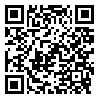BibTeX | RIS | EndNote | Medlars | ProCite | Reference Manager | RefWorks
Send citation to:
URL: http://jdisabilstud.org/article-1-676-en.html
2- Department of Psychology, University of Guilan, Rasht, Iran
Abstract
Background & objective: Having children is one of the strengths of couple relationships. Despite this, the presence of a disabled child is very stressful for parents especially mothers, because they experience more stress, guilty feeling, and fatigue. The present study aimed at investigating the effect of Islamic positive thinking on reduced anger and life satisfaction among mothers having disabled children.
Methods: This study is a pretest-posttest quasi-experimental one. The population consisted of mothers having children with special needs in Roodsar, Iran. A total of 36 participants were recruited through an announcement in exceptional children centers, of whom 6 participants were excluded. The inclusion criteria included having one child with special needs, having at least high school diploma, having no apparent psychological disorders, and getting divorced. The participants were divided into two groups, namely, experimental (N=15) and control (N=15). The research instruments were a demographic information questionnaire (age, gender, marriage status and employment), Novaco Anger Scale (NAS) and Life Satisfaction Scale (LSS). NAS includes 25 questions consisting of five items scored 0-4. This test was constructed by Novaco (2002) and was standardized. Its reliability and validity were reported as 0.61 (p<0.01) and 0.78 (p<0.01) in Iran. Life Satisfaction Questionnaire consisted of 5 statements with 7 items scored 1-7. It has been validated in Iran by using Cronbach’s alpha test, 0.83, and re-testing, 0.61. All people were told that they could leave the experiment when desired. Then positive thinking sessions were covered the following issues: introducing members to one another, description of goals and rules of meetings, describing the hope and the effect of optimism in view of Quran, Training of people to pay attention about self-positive points considering God’s emphasis on the humans capability, Expression of individual positive points from a different angle, describing at least 5-10 positive intellectual memories, listening and pay attention to the positive and spiritual experiences of the members, interaction with others by expressing their positive points, providing a list of positive points covered in the previous sessions, prioritizing positive spiritual experiences, focusing on verses that speak of human ability. Covariance analysis was used to analyze the data.
Results: Mean and SD of the age of experimental and control group were 41.6, 7.48 and 39.8, 3.21, respectively, concerning the education, 70% had diploma, 20% associate degree, 10% master degree. These were 73%, 15% and 12% in the control group respectively. Regarding the education, 77% of the experimental and 23% of control groups were housewives. The results revealed significant pretest-posttest differences in the control group with respect to anger and life satisfaction (p<0.001). Also there was significant difference between the intervention and control group in anger and life satisfaction (p<0.001).
Conclusion: It could be concluded that Islamic optimism training plan reduced anger feeling and led to an increase in life satisfaction of mothers having children with special needs. So, it is recommended to incorporate the plan in intellectual teachings or designing family training plans.
| Rights and permissions | |
 |
This work is licensed under a Creative Commons Attribution-NonCommercial 4.0 International License. |




